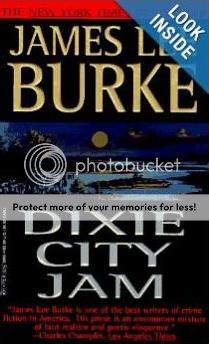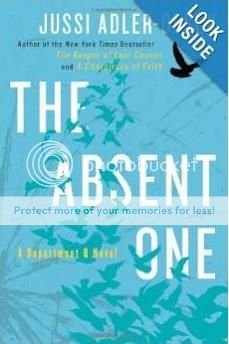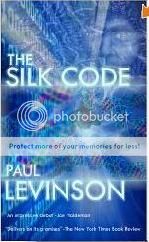
This is the first James Lee Burke that I have read, and there are many others before it and after it. I was given the book after a recommendation from a family member. Since, I have recently started reading more Crime Fiction, this was a natural fit for me. There a few things to note however about this book as you read my review of it. First, while this is a stand alone adventure of Detective Dave Robicheaux (I still don't know how to pronounce his last name), this is really the seventh book in a series of books with him as the main character. Second, the novel takes place in 1994, so if this puts you off, and you need something more current, this might not be your cup of tea. There is no mention of cell phones, and other modern contrivances. Finally, thirdly, and more importantly, this book is not for the faint of heart. I am not talking about violence or blood and guts. There is some violence, but compared to what we see on our TV screens today it is beyond mild. No, what I am talking about is the multi threaded, multi person character arc. This is something only a SERIOUS NOVEL can achieve, and only a serious writer can pull off. You see this in some of this year's better TV Crime or other Dramas: The Killing, Broadchurch, and The Bridge. If you don't have the ability to follow multiple story threads then this book is not for you.
If you do have the ability to follow multiple story threads, this book, after a short introduction from the past, finds Detective Dave Robicheaux trying to get his ex-partner Clete (Cletus) Parcel out of some trouble he got himself in with some local New Orleans (N.O.) mobsters. This is all set against the background of the search for a sunken Nazi sub. The sub was sunk off the Louisiana coast at the mouth of the Mississippi. Apparently, the Nazi's, back in the World War II days, heavily patrolled these waters as a lot of shipping left these shores bound for Europe. But, this ship may or may not have something in it to hide. And it's connection to Detective Robicheaux is as follows: when he was a teenager, diving off a shrimping boat, working summers on the coast, he had seen the wreck of the sunken sub. Years later, he saw it again at a different location, possibly a place where the sub would have drifted with time and tides. Dave Robicheaux now owns a bait and tackle shop along with a boat rental business. He was in one of his boats when he saw the sub for the second time.
There is a local New Orleans hotel entrepreneur who knows Dave's sub story and wants Dave to help him find the sub and raise it. He goes by the name of Hippo Brimstine. Hippo is Jewish. So, is this the reason he wants to raise a Nazi sub? Or is there a hidden reason? One of the mobsters in town also wants to give Dave money to get the location of the sub. But what is his interest? Was his family connected with Nazi's back in the 30s and 40s. Is it because he is Irish-Catholic? Is it some other reason?
Racial politics and race relations play a huge role in this story, as Dave Robicheaux is a "by the numbers" detective who does not break any rules, or does he? Yet, he does bend them to the extent of needing to achieve his goals. Especially when he and his family are threatened by Neo-Nazis and by other N.O. mobsters. Do they find the sub? Are the threats against Dave, his family and his friends countered? Answers are provided in time..... But something more important to consider.
There is a flavor and a smell to this Novel, and it's all Southern and it's all Louisiana and New Orleans. The prose grabs you and drags you in and does not let you go. When you start reading this book, you feel and breath and taste and smell everything. When Dave Robicheaux buys Po 'boy sandwiches, you smell them in the bag he's holding. When Dave's neighbor is burning his sugarcane fields, you smell it too. You feel the Palm fronds waving in the breeze, you sense the breeze off the Gulf, you experience every single sensation. THIS is a book to immerse yourself in. And this is writing to revel in.
James Lee Burke is a gem of writer and I am sad it took me so long to discover him. I have no problem recommending this book, or this writer, based on just this one book. Easily, a four star book.




